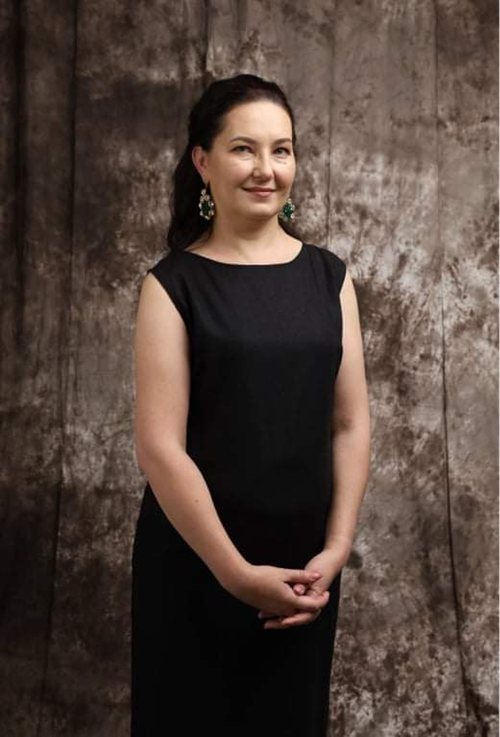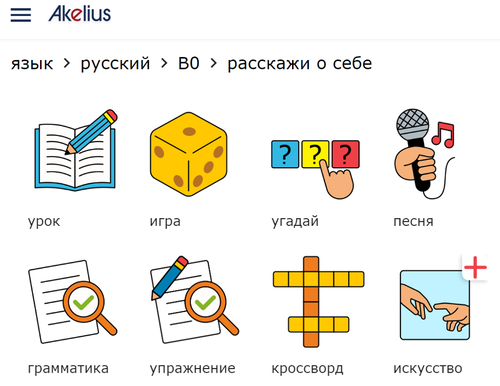IITU language experts, as well as psychologists, described the portrait of a modern student. They explained what kind of educational process we should have today to get a high level of literacy and competencies among the younger generation.

Yuliya Nesterenkova, psychologist, described the portrait of a modern student. According to her, this is not the same student we had 5-10 years ago.
Yuliya Okrovna says that children of the third millennium are familiar with gadgets almost from the first days and their parents let them play computer games and watch cartoons for many hours. In her practice, she comes across such parents who do not read fairy tales to their children and do not ask them to learn poetry and tongue twisters. As a result, all this affects the formation of thought processes in general and children start talking late or have speech disorders.
According to her, the formation of a person's general intelligence is laid in early childhood or preschool age, and it is closely related to the development of speech skills. As a result, by the first grade, every fifth child has difficulties with speech, as his/her communication skills are not developed. And this definitely has an impact on the learning process.
Yuliya Okrovna proposes to collect the image of a modern student, taking into account the peculiarities of the surrounding conditions. Firstly, the brain of modern students is filled with visual information (photos or videos on social networks, easy access to watching films that do not always correspond to psychophysiological development, and computer games). Secondly, they have already formed a completely different perception. Using their intellect and worldview, they select the most interesting pieces from a gigantic pie of information. That’s why it is very important for parents and teachers to work in tandem in order to develop the skill of filtering incoming information.
The psychologist notes that family upbringing has always been the foundation for human development, and no matter how much we talk now about the influence of the Internet, personal example is the main thing in shaping children's Internet interests.

Tatyana Ostapenko, psychologist, notes that the school now does not take into account how children prefer to receive information.
She considers that a modern student tries to get the information that is interesting to him. The need for knowledge and obtaining new skills has not gone away, it has simply disappeared at school. Children go to different circles, watch educational videos and programs and subscribe to bloggers who talk about countries, physics, chemistry, how objects are arranged and how they are applied in life. The school gives the children what they want to get in the wrong format.
According to her, the process of cognition goes differently for students of junior, middle and senior levels. In elementary school, students should learn through games, middle school students through activities, and high school students through communication. Therefore, it is already possible to talk or arrange discussions with high school students.
Tatyana Aleksandrovna believes that the psychology of children is arranged in such a way that up to 8 years they learn the world around through the games. However, when they come to the zero grade at the age of 5 or to the senior group of the kindergarten, they are already given out notebooks that do not have a game component.
Describing modern schoolchildren, Tatyana Ostapenko notes that their brain function has changed, and clip thinking has appeared.
Tatyana Aleksandrovna says that we all try to watch rather than read. We also combine a minimum of text, a visual picture and auditory information. The information that children do remember comes in small chunks. We have changed the way the physiological brain works. That is, before it worked for about 1.5 minutes, turned off for 10 seconds and then started to work again. It was a fairly large gap as in 1.5 minutes it was possible to take in a lot of information. Now the brain works about 20-30 seconds and takes 10 second breaks. Therefore, it is almost impossible to memorize much in such a short time.
During the lessons, Tatyana Ostapenko recommends the teachers to speak clearly and specifically, like a clip in small informative blocks and introduce a large number of activities.
Tatyana Aleksandrovna claims that if we add a reliance on interest, taking into account psychological characteristics and a change in social position (subject-subject) they will want to learn. They have an enormous passion for learning. They are like in the desert where every source of information is an oasis. They use gadgets because they look for information that is important to them. The world has become dynamic, and we need to move quickly to obtain this information.
Yevgeniy Medvedev, assistant professor of the IITU Department of Languages believes that the issue raised by psychologists is relevant. He explained why the game component should be present in the Russian language lessons and suggested how this could be implemented.
He says that the game form of presenting the material is effective, especially for children of primary school age. They don’t have developed logical thinking thanks to which they could consciously assimilate or analyze educational material and identify some patterns.
According to him, for a child, the game is the main form of knowledge of the world around. Therefore, when educational material is presented in the form of a game, the child is involved in the process and can learn the necessary information in the background, due to associations with the characters of the game, its colors, sounds, etc. To do this, subject teachers can use electronic resources in their lessons. As an example, Yevgeniy Medvedev named a project to improve the literacy of children who arrived from other countries, which is jointly implemented by Akelius, UNICEF and IITU.
He says that the Akelius project, which involves the use of an electronic language learning tool, is a good help for a teacher who works with children starting to learn a foreign language, since the tasks in Akelius are developed using a game technique.

IITU has been participating in a joint project with Akelius and UNICEF since November 2021. This initiative is aimed at the socialization of children in difficult life situations. The project involves 9 schools in Kazakhstan, whose teachers conduct classes in the blended learning format using the Akelius platform.
It is expected that by the time the pilot project is completed (February 2023), 250 children will be trained on the Akelius platform, and the blended language learning methodology will become an example for improving literacy in other disciplines and teaching in a digital environment.
